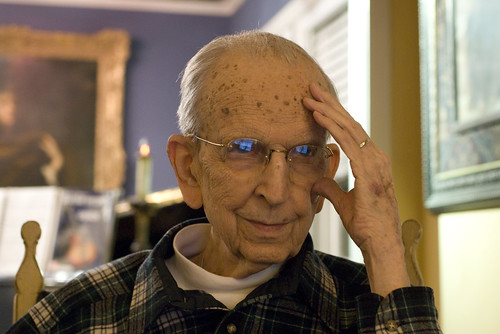In a
tweet this morning Alain de Botton linked to a Washington Post editorial he wrote in December, with the provocative title,
Why most men aren’t man enough to handle web porn.
His basic premise is that because men have much the same brains today that their ancestors had millennia ago, they make unwitting—and often counter-productive—assumptions, judgements, and choices when faced with the apparent abundance of sexual opportunities depicted in pornography.
I think de Botton has a point, but I am not sure it is particularly novel. As he rightly points out, religions have for centuries recognized the two-faced nature of sexual desire—that it can be an expression of love and affection, can be a transcendent experience, and is of course the impetus behind the perpetuation of life; but that it can also lead to dishonesty, betrayal, jealousy, obsession, and even violence. I think de Botton presses a bit too stridently the idea that religions are the only institutions that have recognized the potential dangers of desire’s darker side.
Only religions still take sex very seriously, in the sense of appreciating the power of sex to turn us away from our sincerely-held priorities. Only religions see sex as potentially dangerous and something we need to be guarded against.
I know many conscientious atheist parents who teach their children about the dangers of acting without thinking, and carefully educate them about the potential pitfalls of lust. An important part of this too is teaching children how to deal with strong emotions, how to handle conflicts with others, and how to communicate openly and honestly—for it’s fine and well to realize that desire can get you into trouble, but you have to have a strategy for dealing with the emotion when it comes, not merely avoiding it altogether.
It’s an unfair oversimplification to paint men (or even ‘most men’) as slaves to their emotions and desires, but of course underlying de Botton’s broad generalizations lies a kernel of truth. Compared to women, men are more promiscuous, more jealous, more aggressive in their pursuit of sex, and—importantly—more attuned to visual stimuli. Combined, these traits make sexual imagery more appealing to men. Here again though, de Botton makes an unsubstantiated claim:
The secular world has no problems with bikinis and sexual provocation of all kinds because, among other reasons, it does not believe that sexuality and beauty have the potential to exert a momentous power over us. One is meant to be quite able to behold beauty, online or in reality – and get on with one’s life as though nothing in particular had happened.
I would not say that the secular world denies the power of sexual imagery. Every advertiser knows the sway that beauty and desire hold over us. If advertising were not effective, it would not be such a big business.
Men today are expected to resist temptations that in an earlier age might have seemed irresistible. In any given day, the modern man beholds many images that would have
inspired his more primitive male ancestors not just to feelings of lust,
but also to
actions such as unwelcome advances, sexual assault, or even rape. Men today are more acclimated to such temptations, and better able to handle them. (The real challenge arises where groups with widely disparate standards of modesty & courtship meet. Think of the many Muslim immigrants in Western Europe, and the difficulty they often have adapting to the continent’s more open and liberated attitudes towards sex.)
Both primitive religious
societies and the modern secular world demand personal responsibility. The crucial difference lies in how the responsibility is allocated. In the modern world, it is no longer considered acceptable to blame women for tempting men.
What sets the modern secular world apart is that it demands that men
take personal responsibility for their actions, and live up to a high
standard of respect for women, even in the face of temptation.
Culture-clash problems aside, the modern secular society does a good job holding people to a high moral standard, and gets better all the time. Men today are allowed to
think all the lustful thoughts they want in response to tempting stimuli; but unlike with their forebears, men today must
behave in a civilized way toward women. Men who transgress in the sexual sphere are shunned by society and stand to loose their treasure or even their liberty (or life) when the violation rises to the level of criminality
1. I do not believe modern secular societies fail to recognize the problem of temptation or fail to hold citizens to a high standard.
That having been said, I think there is a nugget of important wisdom buried in de Botton’s words. Specifically, he calls upon men to recognize their own weaknesses, admit that they are a potential source of strife and suffering, and guard against letting these weaknesses take control. Many things that offer short-term satisfaction can stand in the way of more lasting and fulfilling contentment later on. If you realize that certain temptations fall into this category for you, then it’s probably in your best interests to try to avoid these temptations.
Sexually-charged imagery can have a powerful effect on people, and can shape their ideas of their environment in ways that are damaging to their happiness. It has been shown, for example, that married men who are shown photos of attractive women report being less satisfied with their wives. It seems that on some primitive level, images people see are automatically incorporated into their mental worldview. Somewhere deep in the subconscious mind, the men believed those attractive women in the photos were potential mates, present in their surroundings. Remember: in the environment in which our brains evolved, there was no internet, and there weren’t even photographs. In that world, every face you saw belonged to a person there in front of you — likely a member of your community. Nowadays, we see hundreds or thousands of faces per day of people we will never meet.
This phenomenon is not limited to sex, either. When we are bombarded with images of happy, contented people using a particular product, we unwittingly make the assumption that using that product is a potential source of happiness. Or more basically, when we see people living a life of luxury in an advertisement, movie or in real life, we subconsciously compare ourselves to them, and feel inadequate if we do not measure up. Each picture we see changes our perception of the world.
Quite simply, sexual temptation is one of the many areas where our savannah brains are ill-equipped for the modern world. We compare ourselves and our situations to our imagined cohorts—but these days, the concept we create in our minds of our community is likely to be an illusion—an exaggerated fantasy hodgepodge of images from our actual lives combined with images from the media.
Each day we are assaulted by images of health, beauty, happiness, wealth, freedom, and contentment in the media. Some of these images we seek out, such as the movies we watch; others seek us out, such as advertisements. To the extent that these images depict a fantasy life that is unrealistic or unattainable, they will provoke unease and dissatisfaction. We should therefore be careful about the images we allow ourselves to see.
1. Population genetics provides an interesting perspective, and suggests the following optimistic possibility: thanks to increased respect for women and readily available birth control and abortion, rape is quickly declining as a viable
reproduction strategy for men. To the extent that sexual aggression is partially hereditary , these advances in the areas of respect for women and women’s reproductive rights may lead to a general decline in violence in
future generations.






